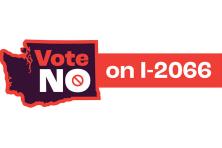Note: the top two items are our contribution to April Fools Day!
Manchin accepts new leadership roles
West Virginia Senator Joe Manchin has joined the board of directors of international climate organization 350.org, the organization announced on Friday. Manchin’s personal financial contributions to the organization last year exceeded $1,500,000, and had understandably provoked questions about the fossil fuel-friendly Senator’s intentions in gaining influence with the advocacy group. In an online press conference, current 350 board member KC Golden praised Manchin’s record of “looking out for the little guys” in the beleaguered coal industry, and said the board was excited about “new directions” Manchin intends to set for the organization. As of this month, Manchin also serves on the board of the Natural Resources Defense Council and was recently honored with a “Surprising Visionary” award from the Sierra Club.
Fossil fuel industry fights back against winds of change in Texas
Wind farm operators in rural Texas are crying foul after researchers at UT Amarillo expressed alarm about a major industrial project under development adjacent to the wind facility. The project, which researchers determined is operated by Lone Star Gas Extraction, is testing a series of large-scale air pressure modulators which, along with an array of massive electromagnets, seem to be designed to disrupt local anemometric activity and cause the wind farm’s turbines to operate less efficiently. A report issued by the UT scientists suggest that these counter-turbine installations could be deployed to disrupt other wind facilities, raising the cost of renewable power across the region.
Despite misinformation, renewable energy still surging
Despite both fossil fuel-funded and NIMBY-organized blockading of renewable projects, wind and solar continue to rise. Recent polling shows a renewed focus on clean energy (and energy costs) by the American public and by high profile federal officials.
Legacy of redlining: Zip codes still determine healthy breathing
New data shows that not a single country met World Health Organization standards for air quality in 2021. In the US, wildfires and pressure to return to “normal” have pushed pollution levels to pre pandemic levels, with some cities even seeing significant increases. This is alarming in a time when both indoor and outdoor air quality is under a new phase of scrutiny. It’s also a reminder that not all air is breathed equally: the practice of redlining across the United States forced certain communities, most often low-income and communities of color, to live in and near heavily polluted or industrial areas. New research on these disparities in Washington cities can be applied nationally, and shows strong correlation between redlined neighborhoods and worse air quality. The research underscores the importance of continued efforts to electrify and clean up transportation systems, improvements with huge potential to save lives.
Russia’s continued impact on clean energy
Responding to the disaster of Russia’s ongoing military aggression in Ukraine, Europe continues to ponder its energy, climate, and clean energy crisis. It’s a massive opportunity to simply get off fossil fuels altogether, especially given the need to transition is no secret. Impacts of the continued conflict at home are clear too as the Biden administration is balancing the politics of action with a historic release from the national oil reserves and with new calls for adjustments to American climate policy.
One Thing You Can Do
Want to read more on the climate, clean energy, and geopolitical issues thrust to the forefront by war in Ukraine? Climate Solutions Transportation Policy Manager Leah Missik collaborates with a number of Russian environmental activists and gives us her take on how and why petrodollars are driving destruction. Read more on the CS blog, which includes a number of ways to donate, support, and learn more. Fueling Destruction | Climate Solutions




